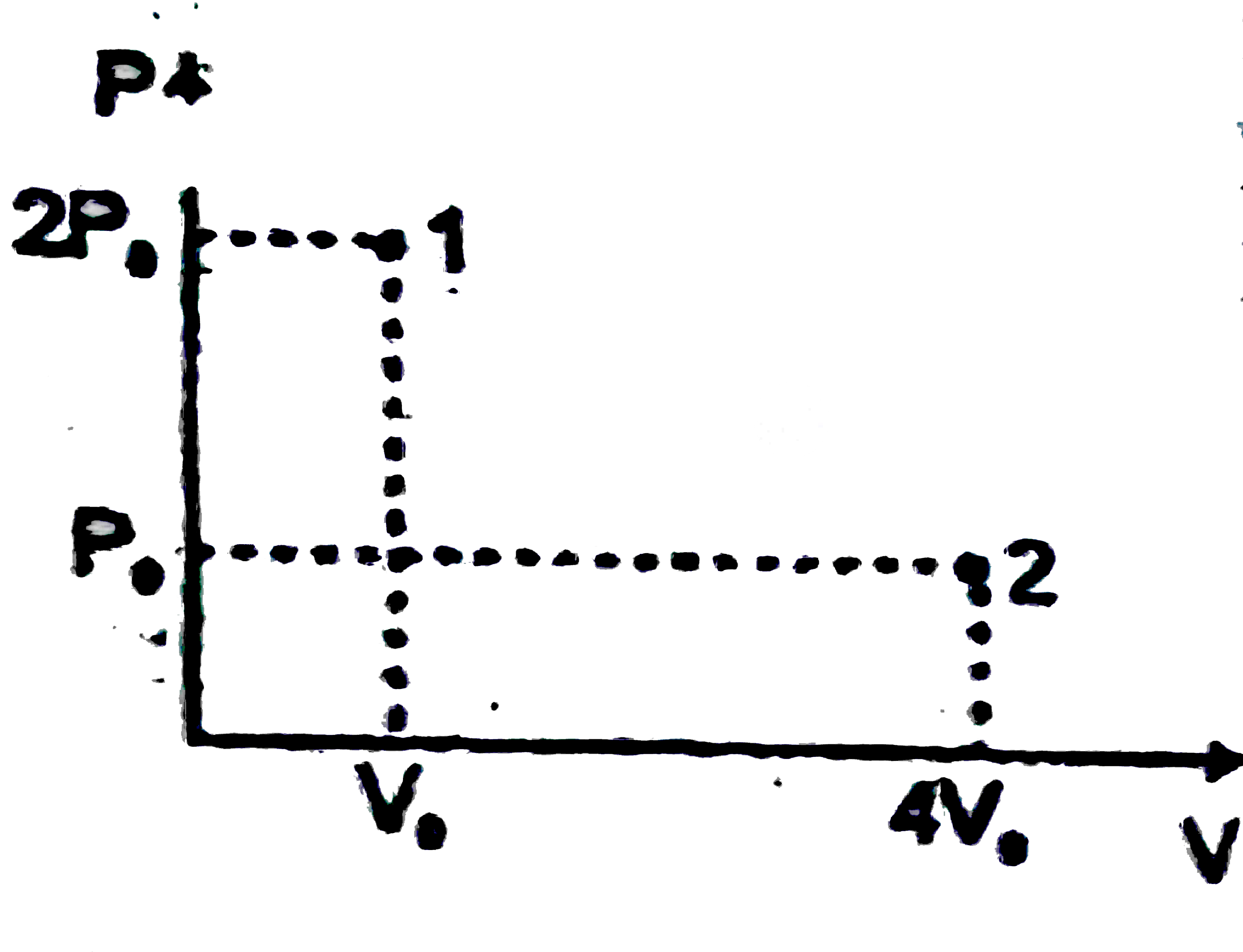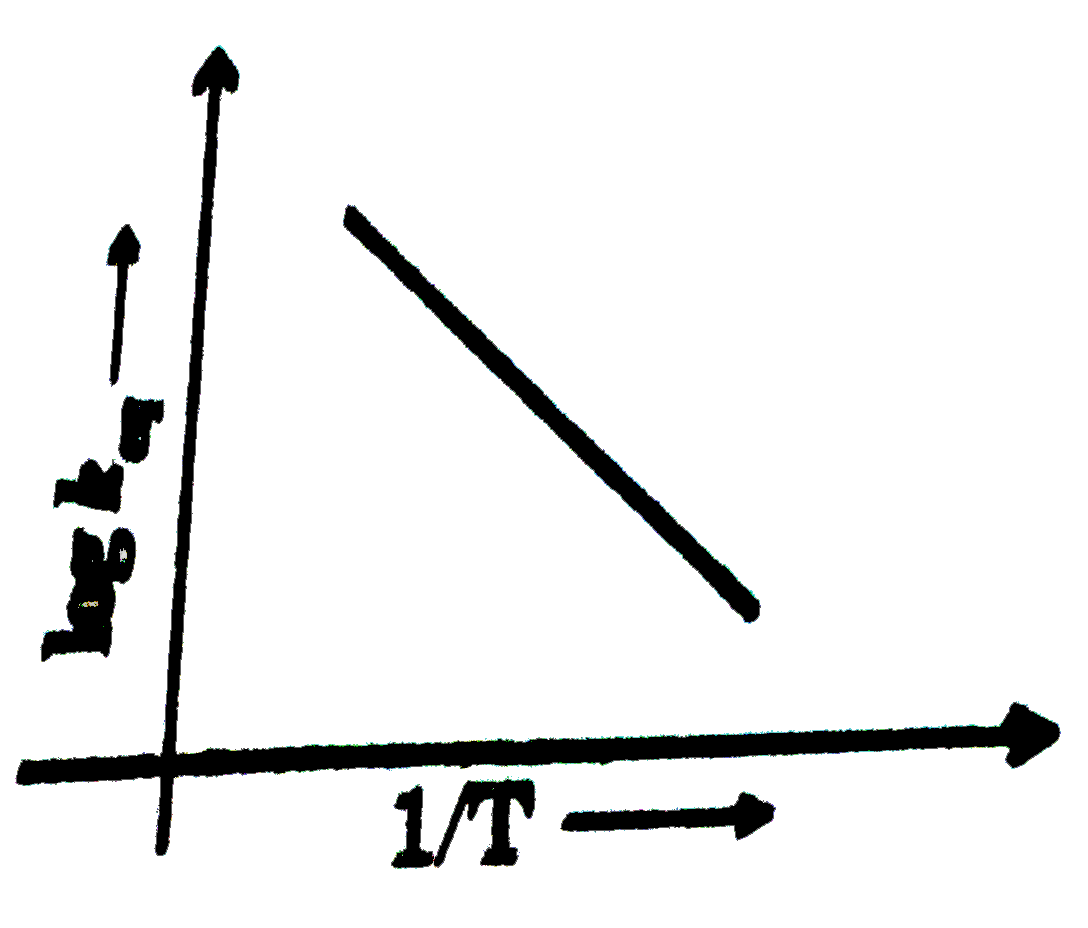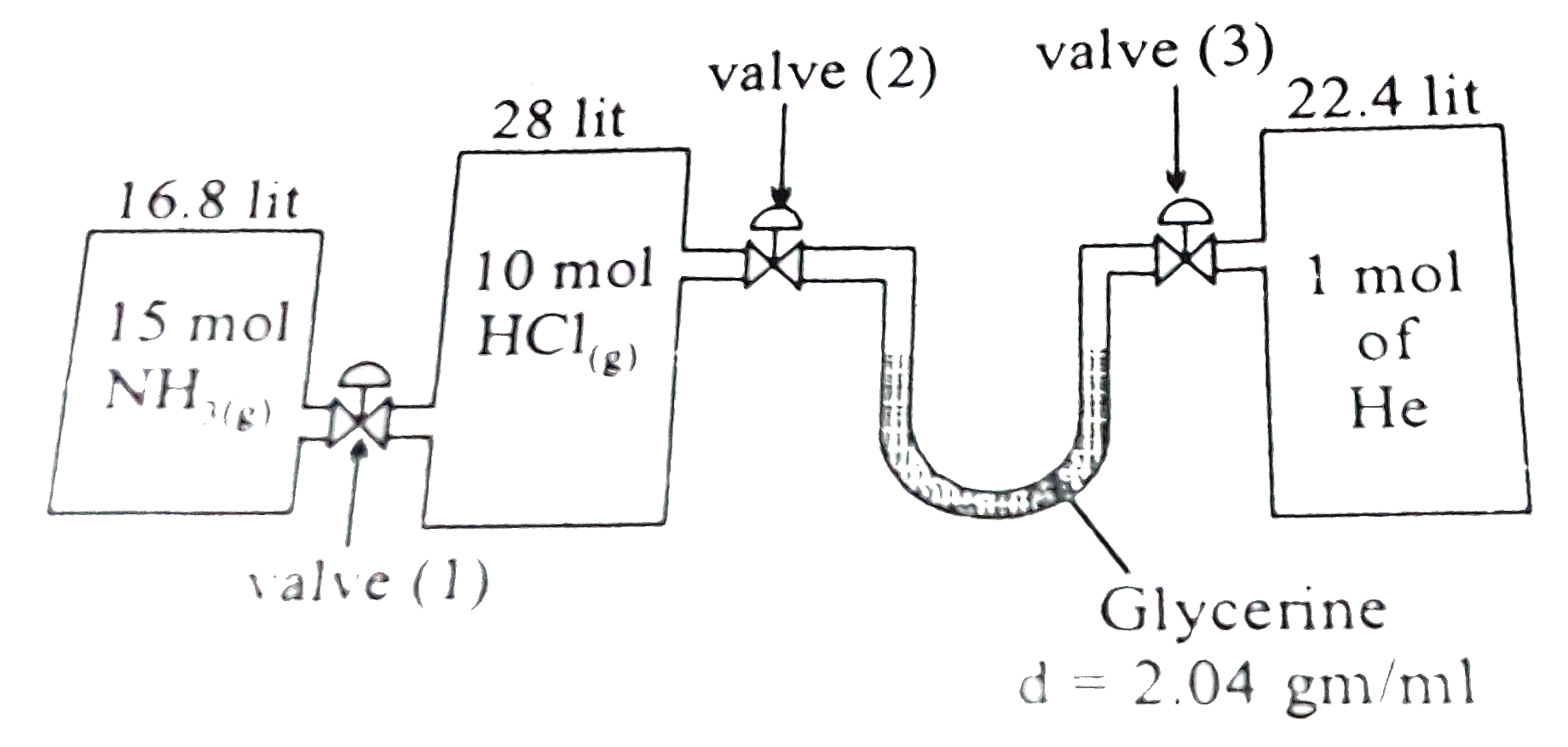Complete Solutions to CHEMISTRY of chapter TEST PAPERS of Class 12 book with complete answers and questions
| Class 12 | MATHS |
| Chapter | TEST PAPERS |
| BANSAL | CHEMISTRY |
| Number Of Questions | 100 |
| Academic Year | 2023-24 |
Iron filing and water were placed in a 5 litre tank and sealed.The tank was heated to 1237 k. Upon anaiysis the tank was found to contain 1.10 gram of hydropen and 42.5 gm of water vapour. If the reaction in the tank is represented by
`3Fe(s) + 4H_(2)O(g) hArr Fe_(3)O(g) + 4H_(2)(g)`
the equilibrium constant will be -View SolutionThe correct IUPAC name of 1,3-dibromo butan -1- one is
View SolutionWhich of the following set of molecules are having square pyramidal and pyramidal shape respectively.
View SolutionCalcualte the mass % of `Na_(2)CO_(3)` in a mixture having mass 206 gm which produces 24 litre of `CO_(2)` at 1 atm pressure and 300K with excess of HCL. [R = 0.08 atm lit/mol K]
02:03View SolutionThe reaction involved during the removal of temporary hardness of water is:
01:21View Solution`A_(3)B_(2)` is a sparingly soluble salt with molar mass `M(gmol_(-))` and solubility `x` gm `litre_(-1)`, the ratio of the molar concentration of `B^(3-)` to the solubilty product of the salt is `:-`
03:14View SolutionMost stable form of ethylene glycol is :
03:05View Solution1.5 ml of the gaseous hydrocarbon required 375 ml of air (containing 20% `O_(2)` by volume) for complete combustion. The resultant gaseous mixture occupied 345 ml. The formula of the hyrocarbon is
View SolutionWhich of the following statement is correct
View SolutionA 2.5 gm impure sample containing weak monoacidic base (Mol. Wt = 45) is dissolved in 100 ml water and titrated with 0.5 M HCL when `((1)/(5))^(th)` of the base was neutralised the pH was found to be 9 and at equivalent point pH of solution is 4.5. Given : All data at `25^(@)C` & log2 = 0.3.
Select correct statement(s).View SolutionSelect option with correct IUPAC names.
03:02View SolutionWhich of the following molecule has dipolemonet
View SolutionTo 100 gm oleum sapmle Labelled as ''118% oleum'', 9 gm of water is added. Select the correct option/ options for final solutions.
View SolutionWhich of the following is/are redox reaction.
View SolutionWhat would be the reduction potential of an electrode at 298 K , which originally contained ` 1K_(2)Cr_(2)O_(7)` solution in acidic buffer solution of `pH = 1.0` and which was treated with 50% of the Sn necessary to reduce all `Cr_(2)O_(7)^(2-)" to "Cr^(3+)`.Assume pH of solution remains constant.
Given : `E^(0)._(Cr_(2)O_(7)^(2-)//Cr^(3+), H^(+))= 1. 33 V , log 2 = 0.3 , (2.303RT)/F = 0.06`View SolutionWhich of the following reactions is not involved in extraction of Cu from copper pyrite ?
View Solution1.0 molal aqueous solution of an electrolyte `"A"_(2)"B"_(3)` is 60% ionised. The boiling point of the solution at 1 atm is `("K"_("b"("H"_(2)"O"))=0.52 "K kg mol"^(-1)")`
01:58View SolutionThe correct order of boiling point of noble gases is :
View SolutionWhich of the following compounds will give isocyanide on reaction with `CHCl_(3) + KOH` ?
01:47View SolutionAn aqueous solution containing `1 M NiSO_(4) & 1 M S_(2) O_(8)^(2-)` is electrolysed using palladium electrode, at `25^(@)C`
`{:(Ni^(+2)+2e^(-) rarrNi,,E^(@)=-0.25 V),(2H^(+)+2e^(-)rarrH_(2),,E^(@)=0.00 V ),(O_(2)+4H^(+)+4e^(-)rarr2H_(2)O,,E^(@)=1.23 V),(Pd^(+2)+2e^(-) rarrPd,,E^(@) = 0.92 V),(S_(2)O_(8)^(2-)+2e^(-) rarr 2SO_(4)^(2-),,E^(@)=2 V):}`
pH of solution is 7.
Select the correct statement on the basis of above given information.
(Ignore over voltage & neglect variation of `E_(Pd^(+2)//Pd)^(@)` with concentration)View SolutionWhich of the following plots represents an ideal binary mixture ?
View SolutionWhich will elimination `CO_(2)` only on heating
View SolutionChoose the reactions which would liberate nitrogen gas?
View SolutionSelect the option having all extensive terms.
View SolutionA person takes `1//2` kg of cheese sandwitches of energy equivalent to `813 kJ`. Suppose that all the energy is lost only through perspiration, what mass of water would he need to perpire in order to maintain his original temperature.
Given : Enthalpy of vapurisation of water is `40.65 kJ mol^(-1)`.View SolutionFind the work done is calorie when `65.5g` Zn reacts with excess `H_(2)SO_(4)` (aq) to form `ZnSO_(4)` & `H_(2)` in a closed rigid vessel at `300 K`.
View SolutionFor the process :
`H_(2)O (l, 1 atm, 373 K) rArr H_(2)O(g, 1 atm, 373 K)`
[Given normal boiling point of water `= 373` K at 1 atm pressure.]
The correct set of thermodynamic parameter is :View SolutionA definite amount of an ideal gas `(gamma = 1.5)` undergoes change of state in which heat exchange is equal to work done `(q=w)`. Molar heat capacity of the gas is :
View SolutionConsider the following set of reactions :
`CHCl_(2)COOH+NaOHrarrCHCl_(2)COONa+H_(2)O " " Delta H_(1) = - 12830` Cal.
`HCl + NaOH rarr NaCl + H_(2)O " " DeltaH_(2) = - 13680` Cal.
`NH_(4)OH + HCl rarr NH_(4)Cl + H_(2)O" " Delta H_(3) = - 12270` cal.
Select the correct option (s) :View SolutionWhat is the standard enthalpy change at 298 K for the following reaction?
`CO_(2) (g)+ C("diamond") rarr 2CO(g)`
Given : `DeltaH_(f)^(@)(CO,g) = - 110.5 kJ//mol : Delta H_(f)^(@)(CO_(2),g) = - -393.5 kJ//mol`
`Delta H_("transition")^(@)[C("graphite")rarr C("diamond")] = 2.0 kJ//mol`View SolutionStructure of `N_(2)O` is `N = N = O`. Calculate bond enthalphy of `N = N` bond in `N_(2)O`.
Given : `{:(DeltaH_(f,N_(2)O)^(@)=100 "kJmol"^(-1)" "BE_(N=N)=950 kJ mol^(-1)),(BE_(N=0)=600 "kJmol"^(-1)" "BE_(O=O)=500 "kJmol"^(-)):}`
and resonance energy of `N_(2)O = - 100 kJ mol^(-1)`View SolutionFor the given reaction ,
`A(g) rarr 2B(g) , Delta_(r)H= 30 kJ//"mole" Delta_(r)S = 150 J//mol` at `300 K`
If `C_(P,A) = 20 J//K mol` and `C_(P,B) = 20 J//Kmol. (ln 3//2 = 0.4)`
Which of the following statement is/are correct ?View SolutionSelect the incorrect statement(s) :
View SolutionFor the decomposition of `NH_(3)(g)` at standard state.
`2NH_(3)(g) rarr N_(2)(g) + 3H_(2)(g)`
[Assume that `Delta H^(@)` and `DeltaS^(@)` of reaction remain constant, 'T' represents temperature in Kelvin scale & `K_(P)` represents equilibrium constant.]
Choose the correct statement(s).View Solution1 mole of a real gas changes it state from state-A(2bar, 3L, 100 K) to state -B (2bar, 5L, 200 K) at constant pressure and finally to state-C (3bar, 10 L, 300 K). If `DeltaU_(BC) = 110 J` and `C_(Pm)` of gas `=3R = 3 xx 8.3 JK^(-1)mol^(-1)` then thoose the correct option(s) :
View SolutionA liquid which is confined inside an adiabatic piston is suddently taken from state `-1` to state `-2` by a single stage irreversible process. If the piston comes to rest at point 2 as shown, then the enthalpy change for the process will be `:`
 05:00View Solution
05:00View SolutionThe volume (in ml) of 0.5 M NaOH required for the complete reaction with 150 ml of 1.5M `H_(3)PO_(3)` solution is
View SolutionCorrect statement about inductive effect is :
View SolutionSelect the correct atatement for Ne.
View Solution`-N = O` group can show
View SolutionThe ratio of the wavelength of a proton & `alpha`-particle will be 1:2 if their
View SolutionSelect the one which does not results in the formation of aromatic species .
View SolutionChoose the correct option regarding energy of empty orbitals.
`{:(,n,l,m,s),((I),4,0,0,+(1)/(2)),((III),3,1,1,+(1)/(2)):}` ` {:(,n,l,m,s),((II),3,2,0,-(1)/(2)),((IV),3,0,0,-(1)/(2)):}`View Solution`CH_(2)=CH-CH_(2)-CH_(2)-C-=CH underset((1 eq))overset(HBr)to ` Product is
View SolutionWhat are the value of p,q,r, and s for the following reaction
`" "pO_(3) + qHI to rI_(2) + sH_(2)O`View SolutionWhich of the following is/are true
View SolutionCorrect order of indicated bond length is/are:
View SolutionSelect reaction in which correct products are given :
View SolutionThree different solutions of oxidising agents `KMnO_(4),K_(2)Cr_(2)O_(7) " and "I_(2)` is titrated separately with 0.158 gm of `Na_(2)S_(2)O_(3)`. If molarity of each oxidising agent is 0.1 M and reactions are :
I.`MnO_(4)^(-)+S_(2)O_(3)^(2-) toMnO_(2)+SO_(4)^(2-)`
II `CrO_(7)^(2-)+S_(2)O_(3)^(2-) to Cr^(3+)+SO_(4)^(2-)`
III. `I_(2)+S_(2)O_(3)^(2-) to S_(4)O_(6)^(2-)+I^(-)`04:56View SolutionIron filling and water were placed in a 5 litre tank and sealed. The tank was heated to 1273 K. Upon analysis the tank was found to contain 1.10 gram of hydrogen and 42.5 gm of water vapour. If the reaction in the tank is represented by
`3Fe(s)+4H_(2)O(g)hArrFe_(3)O_(4)(s)+4H_(2)(g)`
the equilibrium constant will be-View SolutionWhen `H_(2)O_(2)` is reacted with `K_(2)Cr_(2)O_(7)" in dilute "H_(2)SO_(4)` and then ether is added. The ether layer gets -colour
View SolutionThe reaction involved during the removal of temporary hardness of water is:
View SolutionWhat concentration of `Ag^(+)` ions will be in equilibrium with a saturated solution containing a precipitate of `Ag_(2)CrO_(4) and CrO_(4)`-ion concentration of 0.40 moles per litre. Given `K_(SP)" of "Ag_(2)CrO_(4) = 1. 1 xx 10^(-11 )`
View SolutionAll the following substances react with water. The pair that gives the same gaseous product is
01:34View SolutionWhich of the following alkali metal ions has the lowest ionic mobility in aqueous solutions?
02:33View Solution`A_(3)B_(2)` is a sparingly soluble salt with molar mass `M(gmol_(-))` and solubility `x` gm `litre_(-1)`, the ratio of the molar concentration of `B^(3-)` to the solubilty product of the salt is `:-`
03:14View SolutionWhich of the following metals does not form ionic hydride?
00:51View SolutionWhich of the following option is correct regarding the structure of borax?
03:26View SolutionFor the equilibrium:
`LiCl.3NH_(3(s))hArrLiCl.NH_(3(s))+2NH_(3)`, `K_(p)=9 atm^(2)`
at `40^(@)C`. A `5 litre` vessel contains `0.1` mole of `LiCl.NH_(3)`. How many mole of `NH_(3)` should be added to the flask at this temperture to derive the backward reaction for completion?04:18View SolutionFor the reaction
`2CI F_(3)(g) harr CI_(2)(g) +3F_(2)(g) log K_(eq) vs (1)/(T)` (where temperature is in K) curve is obtained as given. Which of the following change will increase the concentration of `CI_(2)` in an equilibrium mixture of `CI_(2), F_(2)` and `CIF_(3)`?
 04:09View Solution
04:09View SolutionWhich of the following is/are redox reaction
View SolutionA 2.5 gm impure sample containing weak monoacidic base (Mol. wt. = 45) is dissolved in 100 ml water and titrated with 0.5 M HCI when of `((1)/(5))^(th)` the base was neutralised the pH was found to be 9 and at equivalent point pH of solution is 4.5. Given: All data at `25^(@)C & log 2 = 0.3.` Select correct statement( s).
View Solution`CaOCl_(2)overset(Delta)underset(CoCl_(2))rarr`product, The product are
View SolutionWhich of the following compounds are dimerised due to the formation of 3 centre four electron bond-
View SolutionA container has 'm' gram of a gas. After a white, a little amount of the gas escapes from the container. The presure of the gas left in the container becomes half, and the absolute temperature is reduced to two-third of the original value. The amount of gas, which escaped from the container is
View SolutionThe compounds `C_(2)H_(5)OC_(2)H_(5)andCH_(3)OCH_(2)CH_(2)CH_(3)` are
View SolutionThe E.N. of H,X,O are `2.1, 0.8` and `3.5` respectively comment on the nature of the compound `H-O-X`, that is :
01:59View SolutionIf 200 ml of `0.1` M `Na_(2)SO_(4)` is mixed with 100 ml of `0.2` M `NA_(3)PO_(4)` solution, molarity of `Na^(+)` in the final solution, if final solution has density `1.2gm//ml`, will be :
03:09View SolutionCorrect IUPAC name of following compound is:
`Hoverset(O)overset(||)(C)-underset(COOH)underset("| ")(CH)-overset(NH_(2))overset("| ")(CH)-COOH`02:20View SolutionWhich one of the following is incorrect ?
View SolutionWhat can be side a about the magnitude of the equilibrium constant K for the following process ?
 View Solution
View SolutionThe number of `p pi-d pi` linkages present in thiazyl fluoride, `S_(4)N_(4)F_(4),` would be :
View SolutionFor a gas select the correct potion / options.
View SolutionIdentify the position isomer.
View SolutionWhich of the following ionisation energy order is/are correct.
View Solution
Select the correct statement about II, II & III compounds.View Solution`{:(,"Column-I",,"Column-II"),((A),BCl_(3),(P),3C -4e^(-)"bond is present in dimer"),((B),BeCl_(2),(Q),"Planar"),((C),PCl_(3),(R),"Change in hybridisation of the central atom during dimerisation"),((D),AsCl_(3),(S),"Tautomerism is observed during final product formation in hydrolysis process"),(,,(T),"Basicty of one of the hydrolysed product is three"):}`
View SolutionTwo gases `N_(2)and H_(2)` are allowed to react from mixture of `N_(2)H_(2)(1) and N_(2)H_(4)(g)` leaving none of the reactants. Formation of `N_(2)H_(2)` (1) does not create any energy change whereas formation of 1 ml `N_(2)H_(4)(g)` absorbs 2 Joule energy. Ratio of volume contraction to energy change (in ml/Joule) during reaction when 30 ml `N_(2)and 40` ml `H_(2)` react under similar conditions of temperature and pressure.
View Solution25 ml of a solution containing HCl and `H_(2)SO_(4)` required 10 ml of 1 M NaOH solution for complete neutralization. 20 ml of the same acid mixture on being treated with excess of `AgNO_(3)` gives Report your answer as `(x+y)xx1000.`
View SolutionAnalyse the following pairs of compounds.
Weite 1, if they are Chain isomers
Write 2, if they are Metamers
Write 3, if they are Position isomers
Write 4, if they are Homologues
Write5, if they are Ring chain isomers
Write6, if they are Resonating structure
Write7, if they are Functional isomers
Write8, if they are TautomersView SolutionOne moel of `N_(2)` and 3.0 moles of `PCl_(5)` were placed in a 100-lotre vessel and heated to `227^(@)C.` The equilibrium pressure was `2.05` atm. Assuming ideal behaviour, calculate X. Where `X=1000xxK_(p)` of reaction at `227^(@)C.`
View SolutionHow many number of species are diamagnetic and have the order greater than `2.5.` `N_(2),N_(2)^(o+),NO^(o+),NO^(Θ),CO,CN^(Θ),KO_(2),Na_(2)O_(2)`
View SolutionObserve the following figure carefully, which is showing the initial conditions of the systems when all valves are closed.

If at `0^(@)C` all valves are opened and system is allowed to come at equilibrium, then calculate the height difference in the glycerine levels of the U tube monometer in (cm). [d of Hg=13.6 g gm/ml]
Assuming the complete reaction of `NH_(3)(g)+HCl(g) to NH_(4)Cl(s).`
Neglect any volume of solid produced and connecting tube. Assume that the manometer is sufficiently long and thin.View SolutionDiamond structure can be considered as ZnS (Zinc blend) structure in which each `Zn^(2+)` in alternate tetrahedral void and `S^(2-)` in cubic close pack arrangement is replaced by one carbon atom.If C C covalent bond length in diamond is 1 .SÅ,what is the edge length of diamond unit cell (2 =8).
View Solution View Solution
View Solution View Solution
View SolutionSelecthe correct statement(s):
View SolutionGive the conect order of initials T(true) or F(false) for following statements [3]
I : Lyophobic sols are irreversible sols.
II : Micelles fonnation takes place only above krafc temperature
III : `PO_4^(3-)` ions have more coagulation value than `SO_4^(2-)` 2ions for coagulation ofpositive sols.
IV : The volues of the colligative properties observed exXperimcntall are ve small of colloied solsView SolutionIn correct statement about given carbohydrate is
 View Solution
View SolutionCorrect statement about I and II
 View Solution
View Solution`HgI_2` (yellow) will be turned into Hgl2 (med) variety on
View SolutionWhich of the following is formed by condensation polymerisation.
View SolutionCompound A(`C_7H_8O`)is insoluble in water, dilute HCl & aqueous `NaHCO_3`, it dissolves in dilute NaOH.When A is treatedwith `Br_2` water it is converted into a compound `C_7H_5OBr_3` rapidly. The structure ofA is
View SolutionThe hcp and ccp structure of a given element. (Given radius of element id same in both structures)
View SolutionWhich of the following reactions of benzene proves the presence of three carbon-carbon double bonds in it :
View SolutionWhich of the following metal (s) produce(s) `N_2O` gas on reaction with 20% `HNO_3`
View SolutionSurfacetant molecules can cluster together as micelles, which are colloid sized cluster of molecules. Micelles from only above critical micelle concentration (CMC) and above centain temperature called K raft temperature. `DeltaH` of micelle formation can be positive or negative. Which is correct statement(s) about micelle formation?
View SolutionWhich of the following does not gives Friedel-Crafts reaction ?
View SolutionWhen blood containing "Haemoglobin" as the colloidal partial is subjected to electro osmosis. The dispersion medium moves towards the anode. Hence, the incorrect statement will be
View SolutionWhich one of the following is aromatic ?
View Solution
CHEMISTRY questions and complete solutions for chapter TEST PAPERS of BANSAL MATHS (HINGLISH) of Class 12
All Exercises from BANSAL Class 12 MATHS TEST PAPERS
- CHEMISTRY
- CHEMISTRY SECTION - 2 [PARAGRAPH TYPE]
- CHEMISTRY SECTION - 2 PART A [SINGLE CORRECT CHOICE TYPE]
- CHEMISTRY SECTION - 2 [MULTIPLE CORRECT CHOICE TYPE]
- CHEMISTRY SECTION-2 PART-A [MULTIPLE CORRECT CHOICE TYPE]
- CHEMISTRY SECTION-2 PART-A [SINGLE CORRECT CHOICE TYPE]
- CHEMISTRY SECTION-2 PART-C [INTEGER TYPE]
- Chemistry SECTION-2 (PART-A) [PARAGRAPH TYPE]
- CHEMISTRY SECTION-2 Part-A ( Multiple correct choice type )
- CHEMISTRY SECTION-2 Part-A ( paragraph type )
- CHEMISTRY SECTION-2 Part-A ( Reasoning type )
- CHEMISTRY SECTION-2 Part-A ( single correct choice type )
- CHEMISTRY SECTION-2 Part-B ( Matrix type )
- CHEMISTRY SECTION-2 Part-C ( Integer type )
- Chemistry, SECTION-2 (PART-A) [MULTIPLE CORRECT CHOICE TYPE]
- Chemistry, SECTION-2 (PART-A) [REASONING TYPE]
- Chemistry, SECTION-2 (PART-A) [SINGLE CORRECT CHOICE TYPE]
- Chemistry, SECTION-2 (PART-B) [MATRIX TYPE]
- Chemistry, SECTION-2 (PART-C)
- Math
- MATHEMATICS
- Mathematics SECTION-3 (PART-A) [COMPREHENSION TYPE]
- Mathematics SECTION-3 (PART-A) [RESONING TYPE]
- Mathematics SECTION-3 (PART-A) [SINGLE CORRECT CHOICE TYPE]
- Mathematics, SECTION-3 (PART-A) [MULTIPLE CORRECT CHOICE TYPE]
- Mathematics, SECTION-3 (PART-B) [MATRIX TYPE]
- Mathematics, SECTION-3 (PART-C)
- Mathenatics
- MATHS
- MATHS SECTION - 2 [MULTIPLE CORRECT CHOICE TYPE]
- MATHS SECTION - 2 PART A [PARAGRAPH TYPE]
- MATHS SECTION - 2 PART A [SINGLE CORRECT CHOICE TYPE]
- MATHS SECTION-3 PART-A [SINGLE CORRECT CHOICE TYPE]
- MATHS SECTION-3 PART-B [MULTIPLE CORRECT CHOICE TYPE]
- MATHS SECTION-3 PART-C [INTEGER TYPE]
- MATHS SECTION-3 Part-A [ comprehension type ]
- MATHS SECTION-3 Part-A [ Multiple correct choice type ]
- MATHS SECTION-3 Part-A [ single correct choice type ]
- MATHS SECTION-3 Part-A [Reasoning type ]
- MATHS SECTION-3 Part-B[ Matrix type ]
- MATHS SECTION-3 Part-C[ Integer type ]
- PHYSICS
- PHYSICS SECTION - 1 [MULTIPLE CORRECT CHOICE TYPE]
- PHYSICS SECTION - 1 PART-A [SINGLE CORRECT CHOICE TYPE]
- PHYSICS SECTION - 1 PART-B [MULTIPLE CORRECT CHOICE TYPE]
- PHYSICS SECTION - 1 PART-C [INTEGER TYPE]
- PHYSICS SECTION - 1 [PARAGRAPH TYPE]
- PHYSICS SECTION-1 Part-A ( Multiple Correct Choice type )
- PHYSICS SECTION-1 Part-A (Comprehension type )
- PHYSICS SECTION-1 Part-A (Reasoning type )
- PHYSICS SECTION-1 Part-A (Single Correct choice Type )
- PHYSICS SECTION-1 Part-B [Matrix Types]
- PHYSICS SECTION-1 Part-C (Integer Type )
- Physics, SECTION-1 (PART-A)
- Physics, SECTION-1 (PART-A) [COMPREHENSION TYPE]
- Physics, SECTION-1 (PART-A) [MULTIPLE CORRECT CHOICE TYPE]
- Physics, SECTION-1 (PART-B) [MATRIX TYPE]
- Physics, SECTION-1 (PART-C)
